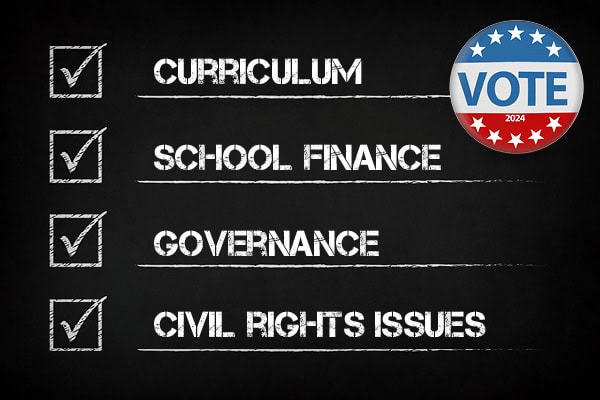In the November election, California voters may have an unusual opportunity to decide whether the state should add a new course to its high school graduation requirements, according to an article in Education Week.
Supporters say the course is urgently needed, but critics say the unusual step of putting curriculum-related issues directly to voters could prompt more such proposals—including the hot-button issues that have plagued many other states over the past three years.
The proposed ballot measure would require a one-semester, one-credit course on personal finance, including instruction in budgeting, credit, and investment, concepts that will help students thrive as adults, supporters say. The item has qualified for the general election ballot, but organizers say they will pull it if a similar bill passes the state legislature in time.
Taking the issue to the voters “is not a step we take lightly,” says Tim Ranzetta, a California businessman who has spent about $7.5 million to support the initiative through a campaign called Californians for Financial Education. “There’s been two decades of attempts [to pass financial literacy bills] in the legislature that have frankly let down California youth, and this is very popular.”
Skeptics of the proposal say setting a course requirement—even a broadly supported one—by popular vote could open up the floodgates to electioneering about more controversial classroom subjects, like how schools discuss race and sexuality. And school districts could face practical and financial challenges meeting new mandates, especially if the trend accelerates. Those requirements would stack on top of requirements California has added through legislation in the last decade, such as teaching about LGBTQ+ topics and ethnic studies.
The California financial education requirement may be the first time a state asks voters to consider a specific course requirement.
Twenty-six states, largely clustered in the southern and western regions of the country, allow voters to collect signatures to place initiatives or referenda on the ballot. Most education questions relate to school finance, governance, and civil rights issues like school integration.
One analysis identified nine ballot questions related to classroom content, which all focused on issues like textbook selection, sex education, and teaching evolution. None set a single course mandate.
State financial literacy requirements are a growing trend, though California would be the first to consider the issue through a popular vote. Legislatures in 25 states have passed bills mandating finance education courses, though some are not fully implemented, according to the Center for Financial Literacy at Champlain College.
The finance education ballot measure would require all high schools, including charter schools, to offer a personal-finance course by the 2026-27 school year. Starting in 2029-30, that course would be required for students to graduate. Local school boards could choose their own curriculum to teach concepts, including the dangers of predatory lending, the tax system, establishing credit, and retirement accounts.
Californians for Financial Education touts an April 2022 poll of 604 California voters in which 85 percent of respondents agreed that “all high school students should be guaranteed to take a basic course in personal finance.”
But even supporters of the finance class have reasons to be concerned about requiring it through popular vote. Schools have limited time to teach concepts like advanced math and literacy that are necessary to compete in a changing economy, and future ballot questions might crowd out needed coursework, critics have said.
While existing restrictions have been passed by conservative state legislatures, it’s not inconceivable that political groups with deep pockets could campaign to put the issue—or less popular course requirements—on a state ballot. And those campaigns can have a chilling effect on classroom discussions, even if the measures don’t win enough votes to become law.
Education Week





